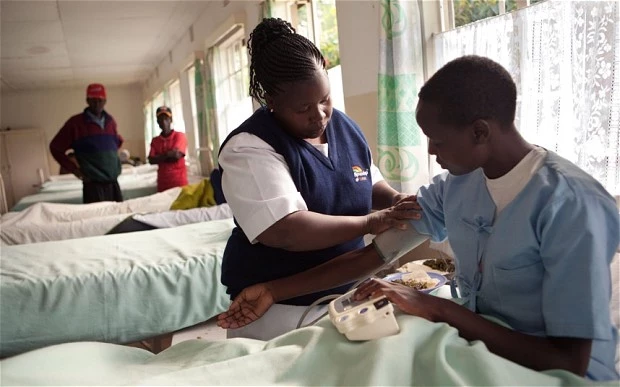National Treasury will now encourage women, youth and persons with disabilities to apply for government contracts, following successful training of over 4,000 suppliers in all the 47 counties.
This is expected to help them take advantage of regulations requiring government agencies to set aside 30 per cent of all contracts for business owned and run by the youth, women and persons with disabilities.
The ministry last Thursday conducted training for people with hearing impairment, to equip them with adequate skills to undertake tender processes using the IFMIS e-procurement platform.
The training is expected to enable entrepreneurs in the special group tap into the vast opportunities availed by the preferential treatment rule.
IFMIS Director Jerome Ochieng said the initiative seeks to enable enterprises owned by special groups take advantage of the 30 per cent procurement opportunities reserved for them by national and county governments including ministries, State corporations and government agencies.
“IFMIS system is designed to enable the Government increase and monitor State procurement opportunities to the minority, including women, youth and persons with disability” he said
“This is an affirmative action aimed at empowering enterprises owned by youth, women and persons with disability by giving them more opportunities to do business with the Government.”
Other than the training, the IFMIS department also developed a custom communication mailer that will enable the special group interact with IFMIS officials as well as request for support in using the system.
5,000 persons
Training for youth, women and people with disabilities is expected to be conducted for more than 5,000 persons this financial year.
In June 2013, Treasury Cabinet Secretary Henry Rotich gazetted the Public Procurement and Disposal (Preference and Reservations - Amendment) Regulations, 2013 which require all Government agencies to give preferential treatment to business owned by youth, women and persons with disabilities.
During the training, Ochieng said IFMIS plans to use Huduma Centres to help businesses that have difficulties with completing the tender processes online.
“We are initiating discussions with the Ministry of Devolution and Planning to use the Huduma Centres to provide support to suppliers in responding online to government tenders,” he said.
 The Standard Group Plc is a
multi-media organization with investments in media platforms spanning newspaper
print operations, television, radio broadcasting, digital and online services. The
Standard Group is recognized as a leading multi-media house in Kenya with a key
influence in matters of national and international interest.
The Standard Group Plc is a
multi-media organization with investments in media platforms spanning newspaper
print operations, television, radio broadcasting, digital and online services. The
Standard Group is recognized as a leading multi-media house in Kenya with a key
influence in matters of national and international interest.
 The Standard Group Plc is a
multi-media organization with investments in media platforms spanning newspaper
print operations, television, radio broadcasting, digital and online services. The
Standard Group is recognized as a leading multi-media house in Kenya with a key
influence in matters of national and international interest.
The Standard Group Plc is a
multi-media organization with investments in media platforms spanning newspaper
print operations, television, radio broadcasting, digital and online services. The
Standard Group is recognized as a leading multi-media house in Kenya with a key
influence in matters of national and international interest.








